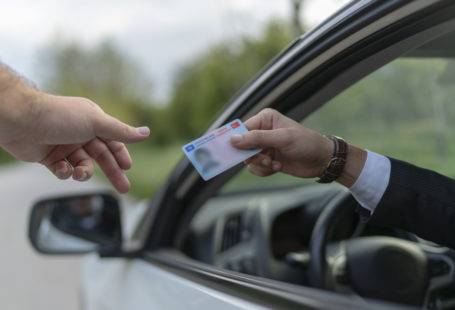Republican lawmakers effectively blocked a fatigued truck driver rule from going into effect, and this move may be only the first shot in a very long battle.
With the GOP now in control of both houses of Congress as well as the White House, former National Transportation Safety Board chairman Jim Hall, who served during the Clinton administration, predicted that the next four years could be “an open season on safety,” as traditionally pro-industry Republicans seek to roll back a number of Obama-era safety rules.
Earlier in December 2016, Republicans added a rider to a spending bill nullifying a requirement that truckers take at least two nights off if they work more than 75 hours in a week. Lawmakers had already blocked a rule mandating that part of the 34-hour end-of-week break be between 1 a.m. and 5 a.m., because scientists believe that sleep during the early morning hours helps people feel more rested. Now, industry groups may target rules that limit tractor-trailer sizes to 28 feet and 80,000 pounds, by moving the limits to 33 feet and 90,000 pounds.
Many truckers apparently support deregulation, as most all states with large numbers of truckers, other than California, went to Republican Donald Trump in the November 2016 election.
First Party Liability in Large Vehicle Crashes
Non-commercial operators basically have a negative responsibility, at least for the most part. They must not drink, not violate traffic laws, and so on. But California law holds commercial drivers to a higher standard. In traffic law, commercial drivers accumulate drivers’ license points at a 50 percent greater rate, so a two-point infraction becomes a three-point infraction. In negligence law, bus drivers, truck drivers, and other commercial operators are common carriers, so they “must use the utmost care and diligence for their safe carriage, must provide everything necessary for that purpose, and must exercise to that end a reasonable degree of skill.”
The high bar in negligence cases is a little like high bars at track and field meets — the higher the bar, the harder it is to get over it. So, items that non-commercial drivers might get away with, like staying up a few minutes past their bedtimes or looking at their cell phones while driving, are breaches of duty for commercial operators.
Fatigue is just one portion of every trucker’s Safety Management System score, which is the federal government’s way of tracking driver safety. The components are:
- Unsafe Driving: This metric covers the operator’s driving record. All drivers have a score from 1 to 100, and the most serious violations are speeding more than 15mph over the limit, reckless driving, and texting while operating a commercial vehicle.
- Hours of Service: These rules are a little confusing, because most states have their own HOS rules in addition to the federal standards. The category includes serious infractions and recordkeeping violations.
- Driver Fitness: Some drivers have out-of-date licenses or suspended licenses, while others have serious medical conditions that should preclude driving.
- Controlled Substance: This category is an example of the enhanced duty, because non-commercial operators cannot use alcohol or be under the influence while driving, and commercial operators cannot use or possess alcohol within four hours of driving.
- Vehicle Maintenance: There are 216 separate violations in this category; the most serious one is operating an out-of-service vehicle.
There are also two non-public categories: cargo violations, such as spilled cargo or unsecured loads, and crash history.
Third Party Liability
Negligence courts use a much broader definition of “employee” than the IRS and other civil courts, so employer liability (respondeat superior, or “let the master answer”) nearly always applies in these cases. In fact, even unpaid volunteers may be “employees” for liability purposes, if the employer controlled the worker. For this rule to apply, the tortfeasor (negligent driver) must also be acting within the course and scope of employment at the time of the crash. If the employee was acting outside the scope of employment, negligent entrustment or one of its cousins, negligent supervision or negligent hiring, probably applies.
In many states, vehicle lessors, like U-Haul and Ryder, are not liable for damages if they rent trucks to people who cause car crashes, even though respondeat superior or some other theory would ordinarily apply. But California has a very expansive view of negligent entrustment. Typically, if the company rents a vehicle to someone with a suspended license, the owner is negligent as a matter of law; if the tortfeasor had a poor driving record, such a record is evidence of negligence.
California is a modified joint and several liability state, so if there are multiple responsible parties, the judge normally apportions damages among them based on their percentage of fault. These damages include compensation for both economic losses, such as medical bills, and noneconomic losses, such as pain and suffering. If you have been hurt in a big-rig accident anywhere in California, call Los Angeles truck accident attorney Sherwin Arzani to find out how we can help.





